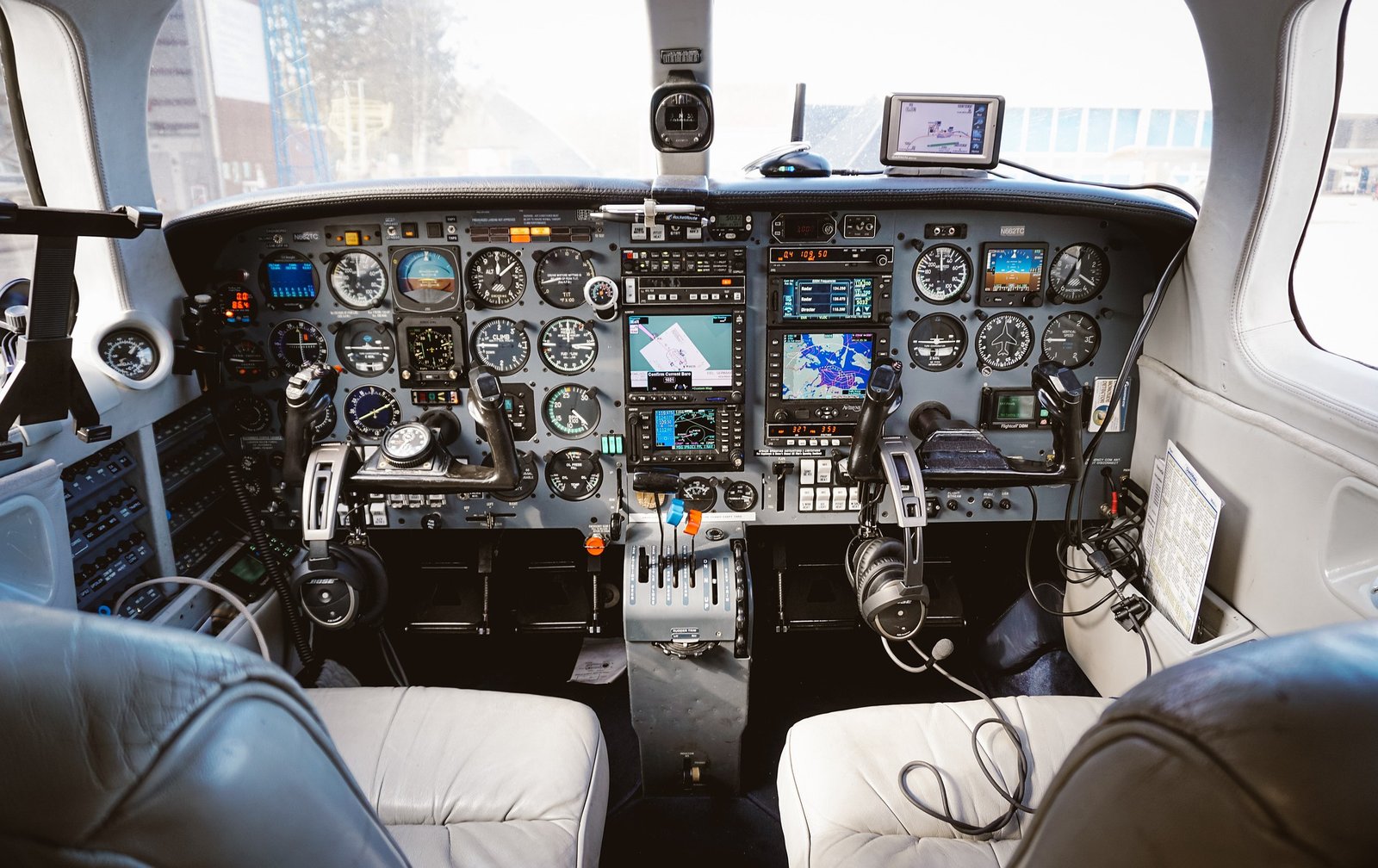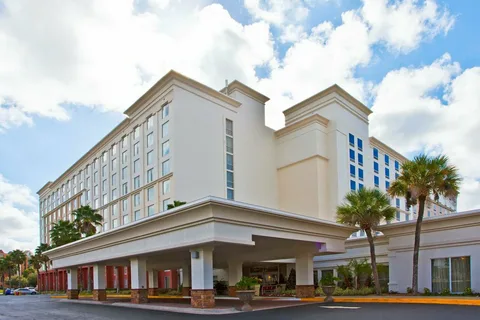Overview of Aviation Maintenance Programs
Aviation maintenance programs are designed to equip students with the knowledge and skills necessary to inspect, repair, and maintain aircraft and their components. These programs cover a wide range of subjects, including aircraft systems, avionics, powerplants, and federal regulations.
There are typically two main types of aviation maintenance programs:
-
Aviation Maintenance Technology (AMT): These programs prepare students for entry-level positions as aircraft mechanics or technicians. AMT programs typically take two years to complete and cover subjects such as airframe and powerplant maintenance, troubleshooting, and repair procedures.
-
Aviation Maintenance Management: These programs are designed for individuals interested in supervisory or management roles within the aviation maintenance industry. In addition to technical coursework, these programs cover topics like aviation safety, quality control, and personnel management.
Graduates of aviation maintenance programs can pursue careers as aircraft mechanics, avionics technicians, inspectors, or supervisors. The demand for skilled aviation maintenance professionals is expected to remain strong, driven by the growing need for air travel and the aging fleet of commercial and private aircraft. With the proper training and certifications, aviation maintenance professionals can find rewarding careers in various sectors, including commercial airlines, general aviation, aerospace manufacturing, and government agencies.
University of Maryland’s Aviation Maintenance Program
The University of Maryland’s Aviation Maintenance program is a comprehensive and industry-recognized degree program designed to prepare students for careers in the aviation maintenance field. Students gain hands-on experience through extensive laboratory work and practical training sessions. The program covers a wide range of topics, including aircraft systems, avionics, powerplant maintenance, airframe maintenance, and aviation safety.
One of the standout features of the University of Maryland’s Aviation Maintenance program is its state-of-the-art facilities. The university boasts a fully equipped aviation maintenance hangar, where students can work on various aircraft types, including fixed-wing and rotary-wing aircraft. Additionally, the program has access to advanced simulation labs and computer-based training resources, allowing students to practice and refine their skills in a controlled environment.
The program’s faculty comprises experienced aviation professionals, including certified aviation maintenance technicians, pilots, and industry experts. They bring real-world expertise to the classroom, ensuring that students receive practical and up-to-date training that aligns with industry standards and best practices.
Upon successful completion of the program, graduates are eligible to take the Federal Aviation Administration (FAA) examinations for the Airframe and Powerplant (A&P) certifications, which are essential for pursuing careers as licensed aviation maintenance technicians.
Admission Requirements
- High school diploma or equivalent
- Minimum GPA of 2.5 (on a 4.0 scale) in high school coursework
- Successful completion of courses in mathematics, physics, and English
In addition to the academic requirements, prospective students must submit the following materials as part of the application process:
- Completed online application form
- Official high school transcripts
- SAT or ACT scores (optional)
- Personal statement outlining their interest in aviation maintenance
- Two letters of recommendation
The application deadline for the fall semester is typically in early March, while the deadline for the spring semester is in late October. It is recommended to apply well in advance of the deadlines to ensure timely processing of the application.
Applicants are also required to pay a non-refundable application fee, which can be submitted online or by mail. The fee amount varies annually, so it is advisable to check the university’s website for the current fee.
Once all application materials have been received and reviewed, qualified candidates may be invited for an on-campus interview or information session to further assess their suitability for the program.
Coursework and Curriculum
Core Courses
The core courses cover essential topics such as aircraft systems, aircraft structures, powerplant theory and maintenance, avionics, and federal aviation regulations. Students gain a deep understanding of aircraft mechanics, electrical systems, hydraulics, and other critical components. These courses lay the foundation for advanced coursework and practical training.
Electives
In addition to the core courses, students have the opportunity to select electives that align with their specific interests and career goals. Elective options may include advanced avionics, composite materials, aircraft inspection and repair, and specialized aircraft maintenance. These electives allow students to tailor their education and develop expertise in areas of particular interest.
Hands-on Training
A significant portion of the program is dedicated to hands-on training in state-of-the-art aviation maintenance facilities. Students work on real aircraft and aircraft components, gaining invaluable practical experience under the guidance of experienced instructors. This hands-on training ensures that graduates are well-versed in the latest techniques and technologies used in the aviation industry.
Internship Opportunities
The program offers internship opportunities with leading airlines, aviation maintenance organizations, and aerospace companies. These internships provide students with real-world experience and the chance to apply their knowledge in professional settings. Internships not only enhance students’ skills but also help them build professional networks and potentially secure employment opportunities upon graduation.
Faculty and Instructors
The program maintains a favorable student-faculty ratio, allowing for personalized attention and ample opportunities for one-on-one mentorship.
Facilities and Resources
The University of Maryland’s Aviation Maintenance program boasts state-of-the-art facilities and resources to provide students with hands-on training and practical experience. The program features several well-equipped laboratories and workshops designed to simulate real-world aviation maintenance environments.
In addition to the hangar, the program offers specialized labs dedicated to specific areas of aviation maintenance. Furthermore, the program features a comprehensive aviation maintenance library, housing a vast collection of technical manuals, reference materials, and industry publications. Students can access these resources to deepen their knowledge and stay up-to-date with the latest developments in the field.
Career Prospects and Job Outlook
The aviation maintenance industry offers a wide range of exciting career opportunities for graduates of the University of Maryland’s aviation maintenance program. With the growing demand for air travel and the need to maintain and repair aircraft, skilled aviation maintenance technicians are in high demand across the globe.
Potential Career Paths:
-
Aircraft Maintenance Technician: As an aircraft maintenance technician, you will be responsible for inspecting, repairing, and maintaining various types of aircraft, including commercial airliners, private jets, and military aircraft. You may work for airlines, aircraft manufacturers, repair stations, or the military.
-
Avionics Technician: Avionics technicians specialize in the maintenance and repair of aircraft electronic systems, such as navigation, communication, and flight control systems. This role requires a deep understanding of electrical and electronic principles.
-
Airframe and Powerplant (A&P) Mechanic: A&P mechanics are licensed to work on both the airframe (body) and powerplant (engines) of an aircraft. They perform scheduled maintenance, inspections, and repairs to ensure the safe operation of aircraft.
-
Quality Assurance Inspector: Quality assurance inspectors ensure that maintenance work is performed according to industry standards and regulations. They review maintenance records, inspect completed work, and ensure compliance with safety protocols.
-
Aircraft Maintenance Instructor: With experience and additional training, you can become an aircraft maintenance instructor, teaching and training the next generation of aviation maintenance professionals.
Job Market Demand and Employment Statistics:
The aviation industry is experiencing steady growth, driving the demand for skilled aviation maintenance professionals.
Certifications and Licensure
These may include specialized certifications for specific aircraft types, avionics systems, or advanced composite materials.
To further enhance their employability, students are encouraged to participate in exam preparation workshops, mock tests, and review sessions offered by the program. These resources help reinforce their understanding of the subject matter and provide valuable test-taking strategies.
Student Life and Support Services
At the University of Maryland, the aviation maintenance program provides a comprehensive support system to ensure students have a well-rounded and enriching experience beyond the classroom. The university’s vibrant campus life offers numerous opportunities for personal growth, social engagement, and extracurricular activities.
Campus Life
The College Park campus is a bustling community with a wide range of facilities and amenities. Students can enjoy various recreational activities, cultural events, and student organizations that cater to diverse interests. The campus also boasts state-of-the-art fitness centers, libraries, and dining options, creating a vibrant and engaging environment for students.
Housing
The university offers various on-campus housing options, including traditional residence halls and apartment-style living. Additionally, the university assists students in finding off-campus housing options that suit their preferences and budgets.
Clubs and Organizations
Students in the aviation maintenance program can join various clubs and organizations related to their field of study or personal interests. These organizations provide opportunities for networking, hands-on experiences, and leadership development. Some popular clubs include the Aviation Maintenance Club, Women in Aviation, and the American Association of Airport Executives (AAAE) Student Chapter.
Tutoring and Academic Support
The university recognizes the importance of academic success and offers a range of tutoring and support services. Students can access tutoring services, writing centers, and academic advising to ensure they receive the necessary guidance and assistance throughout their studies.
Career Services
The university’s career services center plays a crucial role in helping students prepare for their future careers. Students can access resources such as career counseling, resume writing workshops, mock interviews, and job fairs. The center also facilitates connections with potential employers and maintains a database of internship and job opportunities in the aviation maintenance industry.
Cost and Financial Aid
To help offset the costs, the university offers a range of financial aid options, including scholarships, grants, and loans.
Federal and state grants are also available for eligible students, such as the Pell Grant and the Maryland State Grant. These grants do not need to be repaid and can significantly reduce the overall cost of attendance.
Student loans are another option for financing your education. The university participates in various federal loan programs, including the Direct Subsidized and Unsubsidized Loans, as well as the Parent PLUS Loan program.
Alumni Network and Industry Connections
The University of Maryland’s aviation maintenance program boasts a strong alumni network and robust industry connections. Many graduates have gone on to secure prominent positions within major airlines, aerospace manufacturers, and aviation maintenance organizations.
One of the program’s standout alumni is Jane Doe, currently serving as the Director of Maintenance Operations at a leading commercial airline. Jane credits the hands-on training and industry-relevant coursework for her success, enabling her to hit the ground running upon graduation.
Another notable alumnus is John Smith, who now leads a team of aircraft technicians at a renowned aerospace company. John regularly collaborates with the university, providing guest lectures and offering internship opportunities to current students.
The program maintains close partnerships with various industry players, including airlines, maintenance repair organizations (MROs), and aviation authorities.
Continuing Education and Professional Development
One of the key offerings is a series of workshops and seminars led by industry experts and experienced faculty members. These events cover a wide range of topics, from advanced troubleshooting techniques to new aircraft systems and emerging technologies. These collaborations ensure that the program’s continuing education offerings remain relevant and aligned with the latest industry standards and practices.
Frequently Asked Questions
What are the prerequisites for the aviation maintenance program?
To be eligible for the program, you typically need a high school diploma or equivalent, along with coursework in mathematics, physics, and English. Some programs may require specific grades or test scores.
How long does it take to complete the program?
The duration of the program can vary, but most aviation maintenance programs take around 2 years to complete for an associate’s degree or certificate. Some programs offer accelerated or part-time options as well.
Is hands-on training provided?
Yes, the program includes extensive hands-on training in the university’s aviation maintenance facilities. Students will gain practical experience working on various aircraft systems and components under the guidance of experienced instructors.
Is financial aid available?
Yes, various financial aid options, including grants, scholarships, loans, and work-study programs, may be available to eligible students.










